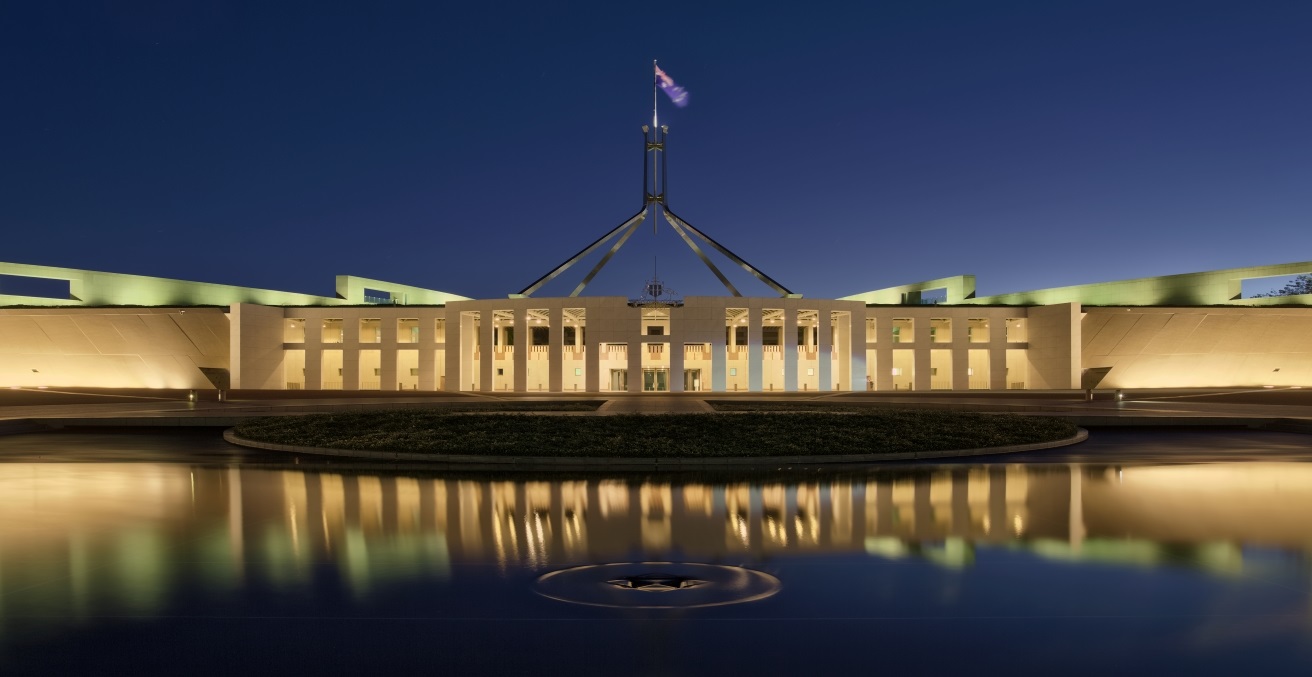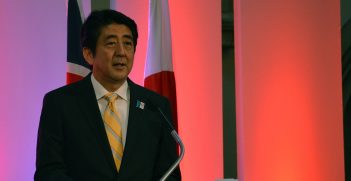23 April: The Week in Australian Foreign Affairs

This week in Australian foreign affairs: the withdrawal of troops from Afghanistan; the cancellation of four arrangements between Victoria and foreign governments; Frances Adamson at the Asia Society; and more.
On 15 April, Prime Minister Scott Morrison, Minister for Defence Peter Dutton, and Minister for Foreign Affairs Marise Payne jointly announced the withdrawal of Australian troops from Afghanistan by September 2021. This mirrors the United States’ recent announcement, and according to the Ministers, it is “consistent with the Government’s policy … in the 2020 Defence Strategic Update to prioritise military resources on our region”. The Ministers also noted that 41 Australians have lost their lives while serving in Afghanistan since 2001, and more than 39,000 Australians have served.
Morrison virtually delivered a speech on 15 April at the sixth annual Raisina Dialogue in New Delhi, India, where he discussed the Australia-India relationship. He reflected on the Indo-Pacific region, the importance of the Association of Southeast Asian Nations (ASEAN), and Exercise MALABAR, which Australia, India, Japan and the United States participated in last November. Morrison stated that, “Our region confronts some formidable challenges, and the pandemic has sparked a renewed appreciation amongst like-minded nations for each other and what we both can contribute, all of us can contribute, to our partnerships and to our region … Together, we carry the aspirations for the future. A region stable, a region prosperous with healthy people and a clean environment.”
Payne noted on 21 April that four arrangements between the Victorian state government and foreign national governments will be cancelled, due to inconsistency with Australia’s Foreign Relations (State and Territory Arrangements) Act 2020. These arrangements are:
- The Memorandum of Understanding between the Department of Education and Training (Victoria) and the Technical and Vocational Training Organisation, Ministry of Labour and Social Affairs, the Islamic Republic of Iran, signed 25 November 2004;
- The Protocol of Scientific Cooperation between the Ministry of Higher Education in the Syrian Arab Republic and the Ministry of Tertiary Education and Training of Victoria, signed 31 March 1999;
- The Memorandum of Understanding between the Government of Victoria and the National Development and Reform Commission of the People’s Republic of China on Cooperation within the Framework of the Silk Road Economic Belt and the 21st Century Maritime Silk Road Initiative, signed 8 October 2018; and
- The Framework Agreement between the Government of Victoria and the National Development and Reform Commission of the People’s Republic of China on Jointly Promoting the Framework of the Silk Road Economic Belt and the 21st Century Maritime Silk Road, signed on 23 October 2019.
Secretary of the Department of Foreign Affairs and Trade, Frances Adamson, gave a speech at the Asia Society on 21 April as part of the Leaders on Asia program. Adamson outlined Australia’s three main regional engagement priorities over the next five years, which she stated “will be crucial for Southeast Asia”: recovery from COVID-19; commitment to the region’s resilience, as seen in the new $232 million Mekong-Australia Partnership; and building stronger relationships. She also referred to the coup in Myanmar as “catastrophic” and “one of the sharpest challenges our region faces … [it is] a security, political and humanitarian crisis that is not only catastrophic for the people of Myanmar, but imperils regional stability and enmires ASEAN in issues that divert attention from the priorities of economic recovery and strategic agency.”
On 15 April, Payne, Dutton and Minister for Home Affairs Karen Andrews issued a joint statement in which they “[joined] international partners to support the US statement of 15 April 2021 to hold Russia to account for its harmful cyber campaign against US software firm, SolarWinds.” The Ministers also noted that, “over the past 12 months, Australia has witnessed Russia use malicious activity to undermine international stability, security and public safety.”
Payne and Minister for International Development and the Pacific, Zed Seselja, announced on 19 April that they will visit New Zealand from 21-23 April. During the visit, Payne will participate in the biannual Australia-New Zealand Foreign Minister Consultations and will meet with other senior New Zealand ministers and representatives, including Prime Minister Jacinda Ardern. Seselja will meet with New Zealand’s Minister for Pacific Peoples, Aupito William Sio, to discuss vaccine access and rollout coordination.
On 21 April, Payne announced the launch of Australia’s International Cyber and Critical Technology Engagement Strategy, which sets out the goal of “a safe, secure and prosperous Australia, Indo-Pacific and world, enabled by cyberspace and critical technology.” In a speech on the same day as the launch, Payne stated that “technology companies today are significant global actors whose decisions and products shape economies, security, even geostrategic and foreign policy developments.” The Strategy is based on three key pillars of values, security and prosperity and is available here. The strategy contains a package to support cyber and critical technology resilience in the region, including:
- Australia co-sponsoring a proposal to establish a new United Nations Program of Action for Responsible State Behaviour in Cyberspace;
- An additional $20.5 million to strengthen cyber and critical technology resilience in Southeast Asia; and
- A further $17 million to support neighbours in the Pacific to strengthen their cyber capabilities and resilience.
Shadow Minister for Foreign Affairs Penny Wong responded to the launch of the International Cyber and Critical Technology Engagement Strategy on 21 April, stating that it “comes five months too late and falls short on real action to counter growing cyber threats.” Wong noted that “the strategy does not propose any new actions by the Morrison Government to tackle the billion-dollar wave of ransomware attacks Australian businesses are facing from international cybercrime groups.”
On 19 April, Wong delivered the Annual Lecture of the Australian Institute of International Affairs’ Tasmania Branch, where she discussed human rights in Australia’s foreign policy future. She reflected on the military coup in Myanmar and the imposition of the National Security Law in Hong Kong, referring to both as “harrowing developments.” Wong further stated that “[Australia] should speak out clearly and consistently in support of human rights. And where we can, we should act.” She also noted the reports of violations of international law in Xinjiang, China, and argued that the Morrison Government’s “slowness to act on this sends a regrettable message … that we are not committed.” Wong reflected on the foreign policy achievements of past Labor governments, and contrasted the Government’s approach as being “shallow and reflexive.”
Isabella Keith is an undergraduate student at the Australian National University studying Law and Politics, Philosophy and Economics. She is currently an intern at the AIIA National Office.
This article is published under a Creative Commons License and may be republished with attribution.





